
China
12:47, 06-Jul-2017
Chinese police looks into Baidu’s billionaire CEO’s self-driving ride
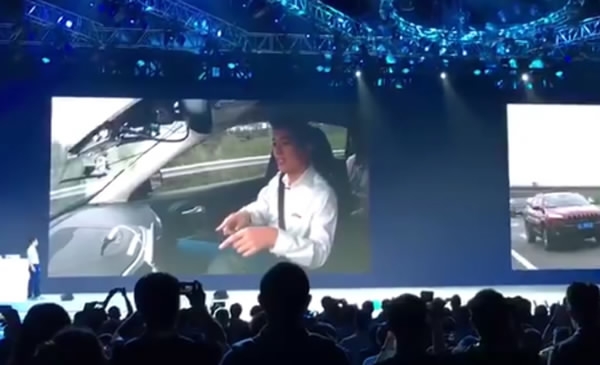
China’s tech tycoon Robin Li, the co-founder, chairman and CEO of Baidu, Google’s rival in China, attracted some unwanted attention from the police after a live video of him testing a self-driving car on Beijing’s busy 5th Ring Road caught much publicity on Wednesday.
In the one-minute-long video footage, Li was spotted sitting on the passenger-side seat of a self-driving prototype car controlled using a Baidu software. Behind the wheel was Gu Weihao, director of the company’s intelligent vehicle branch. Gu had his hands off the steering wheel throughout the driving.
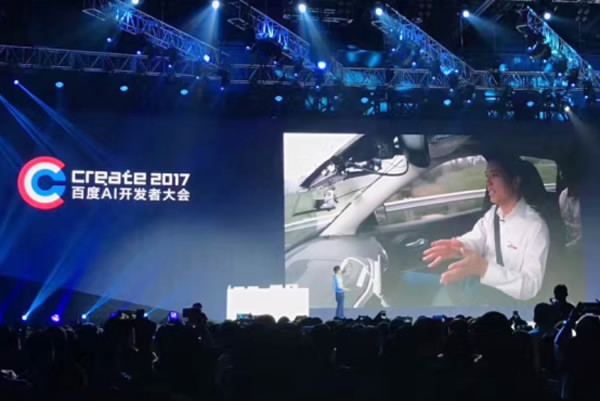
Robin Li interacts with crowd at Baidu Create 2017 AI developer conference at National Convention Center from the self-driving car on Wednesday. / Beijing Youth Daily Photo
Robin Li interacts with crowd at Baidu Create 2017 AI developer conference at National Convention Center from the self-driving car on Wednesday. / Beijing Youth Daily Photo
While Li’s real-time ride makes a tantalizing starter for his company’s artificial intelligence developer conference held at Beijing’s National Convention Center Wednesday morning, the city’s traffic cops are not that happy with the hands-free stunt, for good reasons.
China’s traffic laws and regulations currently contain no articles concerning autonomous cars, which means automakers and companies have to seek the authorities’ approval before any self-driving prototypes hit the public roads.
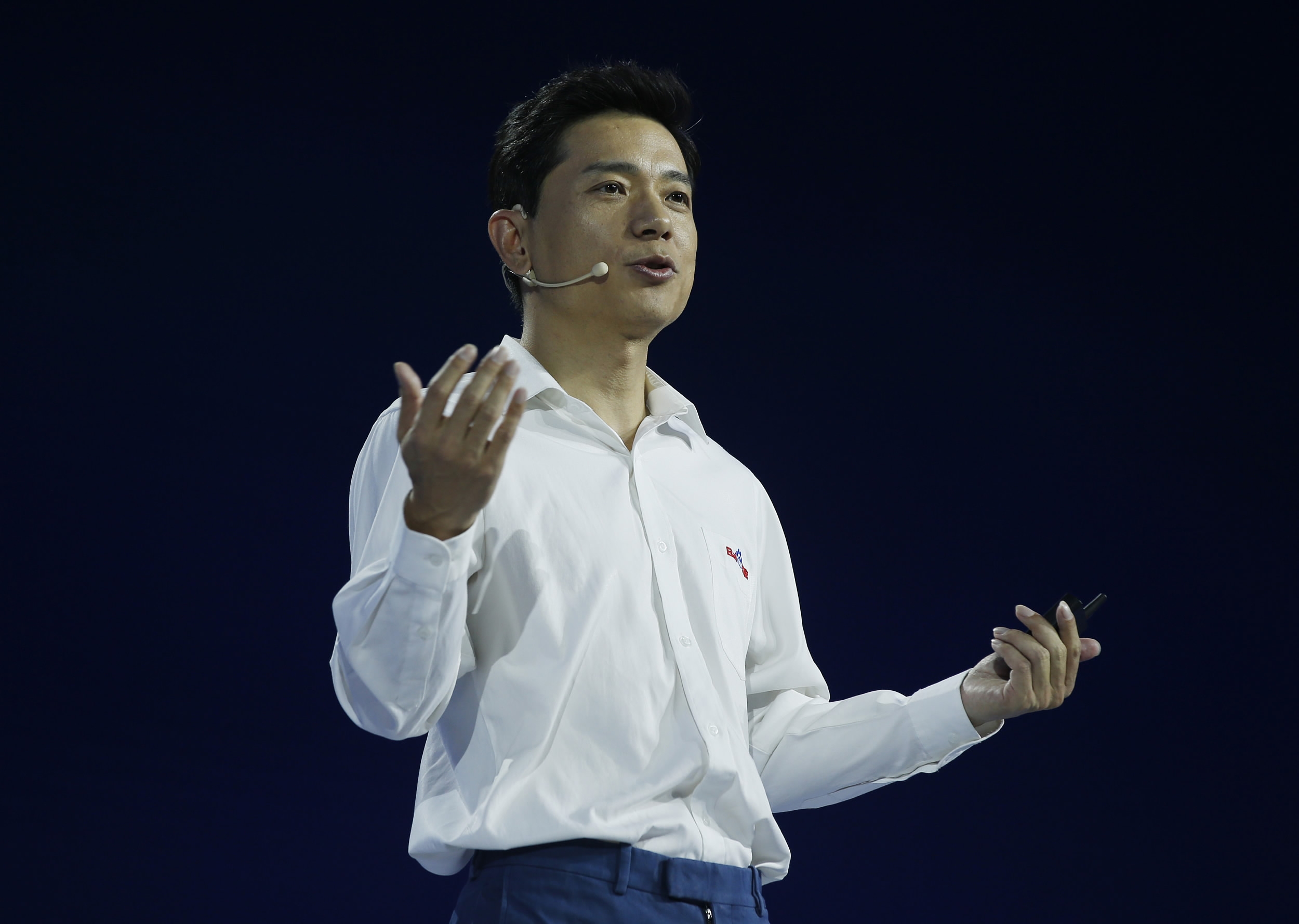
Robin Li at the Baidu Create 2017 AI developer conference at National Convention Center Wednesday. /VCG Photo
Robin Li at the Baidu Create 2017 AI developer conference at National Convention Center Wednesday. /VCG Photo
Although it’s not yet clear whether Baidu had received the permit for Wednesday's test driving, either Li or Gu is sure to see 2 points deducted from their driving license, as some netizens spotted the car dangerously driving across a solid white line to change lane, a move that violates Chinese laws.
Baidu has been an aggressive player in the self-driving race to bring the technology to the market, as an important move to commercialize AI, where the company is seeking new growth for the next decade.
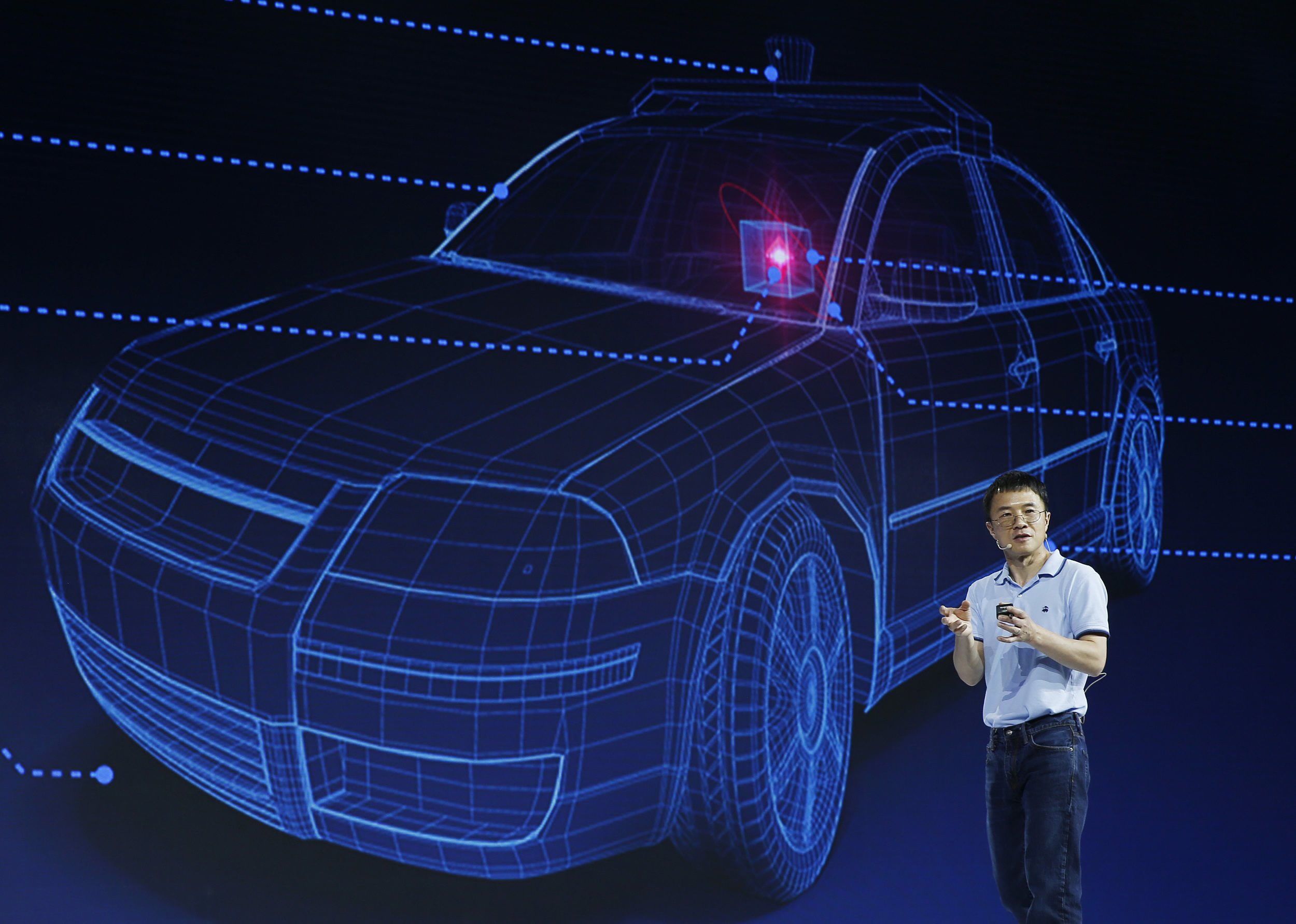
Lu Qi at the Baidu Create 2017 AI developer conference at National Convention Center Wednesday. /VCG Photo
Lu Qi at the Baidu Create 2017 AI developer conference at National Convention Center Wednesday. /VCG Photo
Lu Qi, Baidu’s chief operating officer, said the company has rolled out an ambitious agenda to push forward its autonomous car scheme, aiming to test its self-driving vehicles on restricted areas later this month and to have fully autonomous driving on urban roads and highways by the end of 2020.
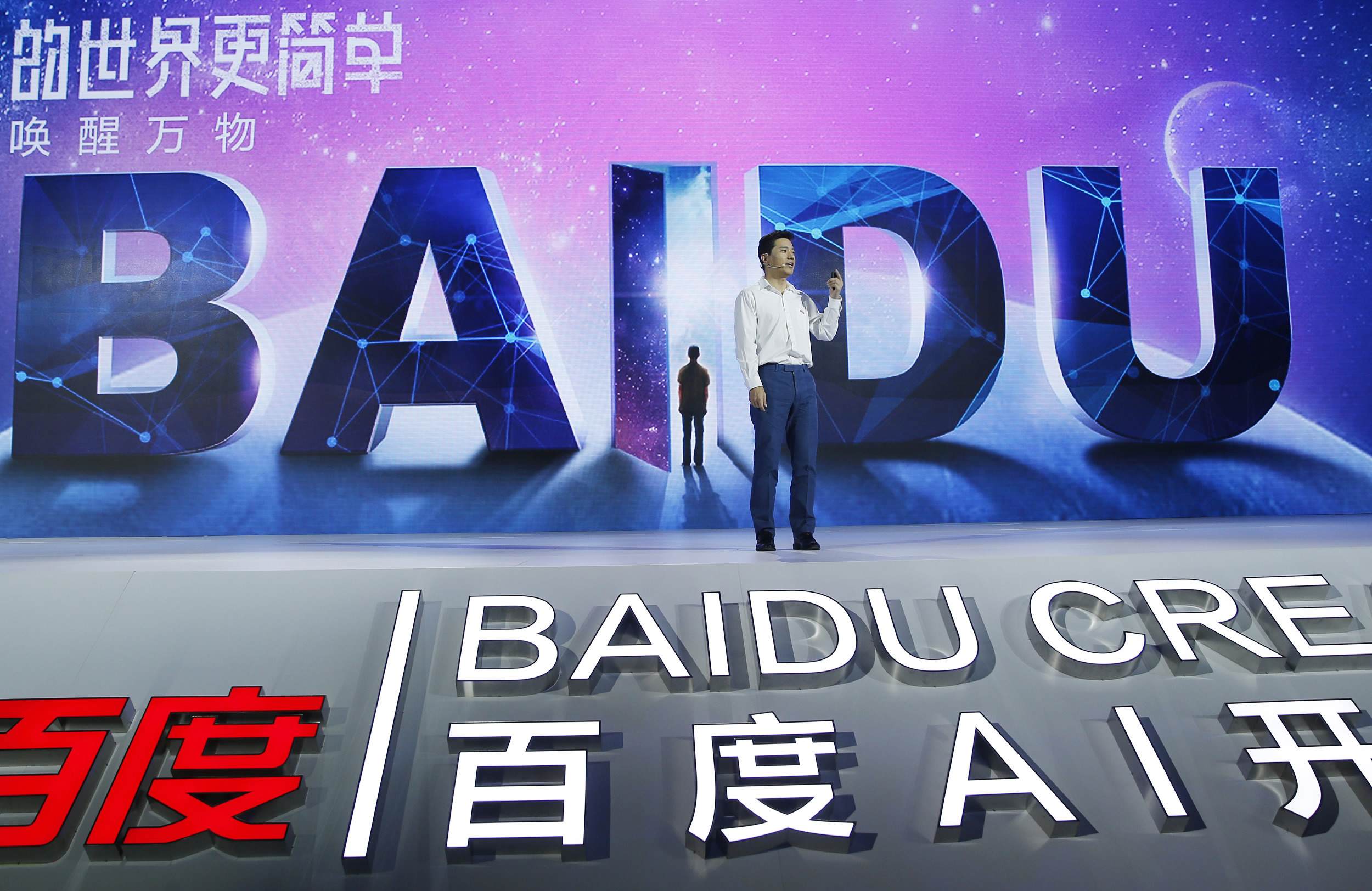
Robin Li at the Baidu Create 2017 AI developer conference at National Convention Center Wednesday. /VCG Photo
Robin Li at the Baidu Create 2017 AI developer conference at National Convention Center Wednesday. /VCG Photo
Baidu's AI dream is quite in line with the Chinese government’s intention to shore up the country’s artificial intelligence industry as it is trying to shake off the stigma of being a knockoff hub and transform itself into a tech innovator.
Last year, China’s state planner, the National Development and Reform Commission, announced a plan to create an AI market worth more than 15.26 billion US dollars by 2018.
Soon after the National People’s Congress, China’s top decision-making body, released a report in March singling out AI as a key area of development. The country’s biggest technology companies -- Alibaba, Baidu and Tencent -- announced plans for AI laboratories and projects worth billions of dollars.
1km

SITEMAP
Copyright © 2018 CGTN. Beijing ICP prepared NO.16065310-3
Copyright © 2018 CGTN. Beijing ICP prepared NO.16065310-3